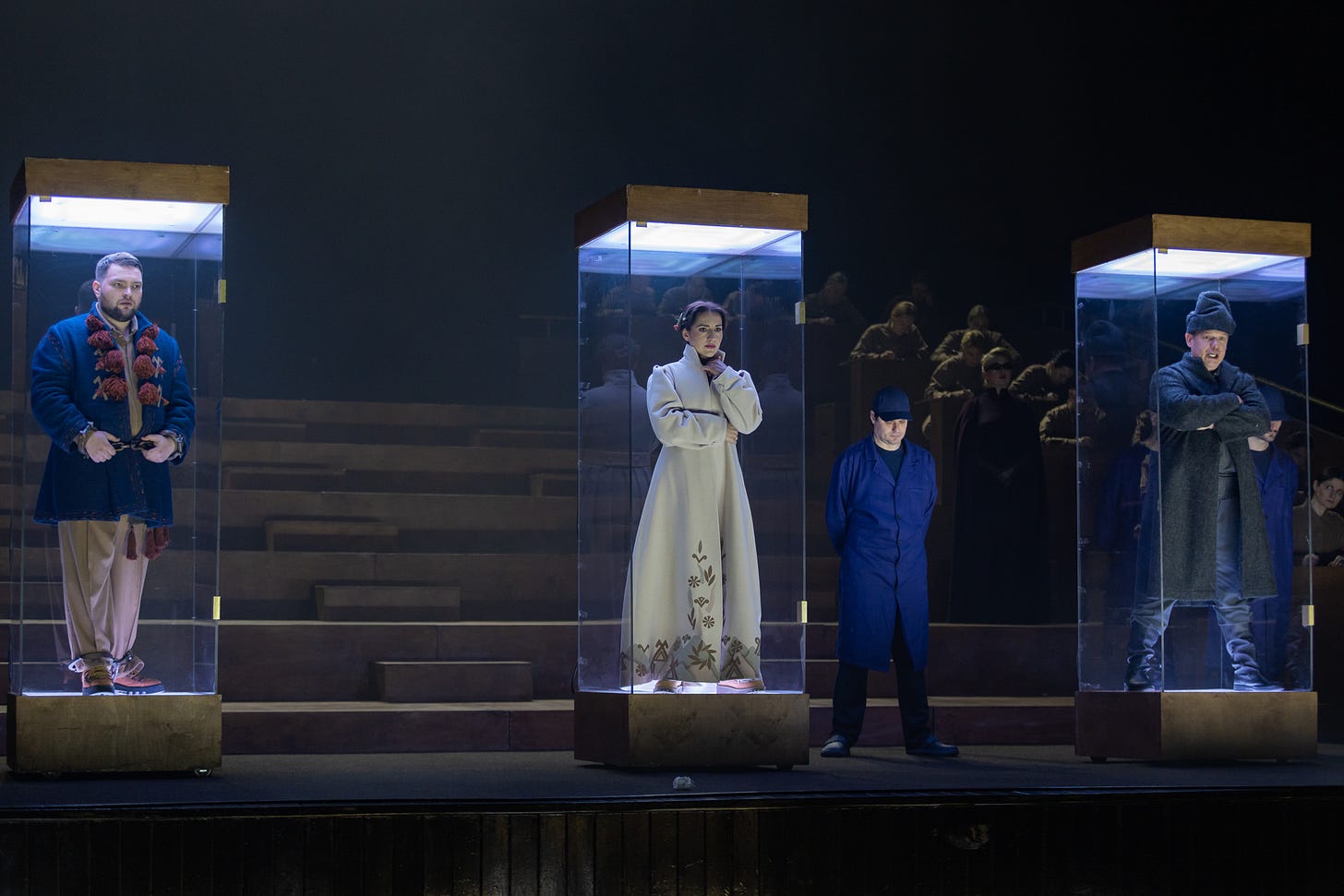Real Reactions
Borys Lyatoshynsky’s The Golden Crown in Lviv, selective solidarity everywhere else

After a few nonstop news weeks, I have a piece up on the London Review of Books blog from my trip to Ukraine last month for the Lviv National Opera’s quasquicentennial (a word that Google Translate renders into the great Ukrainian language as кваскі-сторіччя — literally, “kvass-century” — which is visually intriguing but ultimately inaccurate).
I arrived in Lviv just a few days after the October 5 attacks (I was on a train to Poland to get a ride into Ukraine as the attacks were still going on), which, as I note in the LRB piece, elicited “zero real reaction” from the West, in the words of Volodymyr Zelensky. For some reason, I was reminded of this line that week during a daylong musicological conference held at the opera house: “We haven’t managed yet to find the appropriate level of our national identity and cherish it as other nations have…


